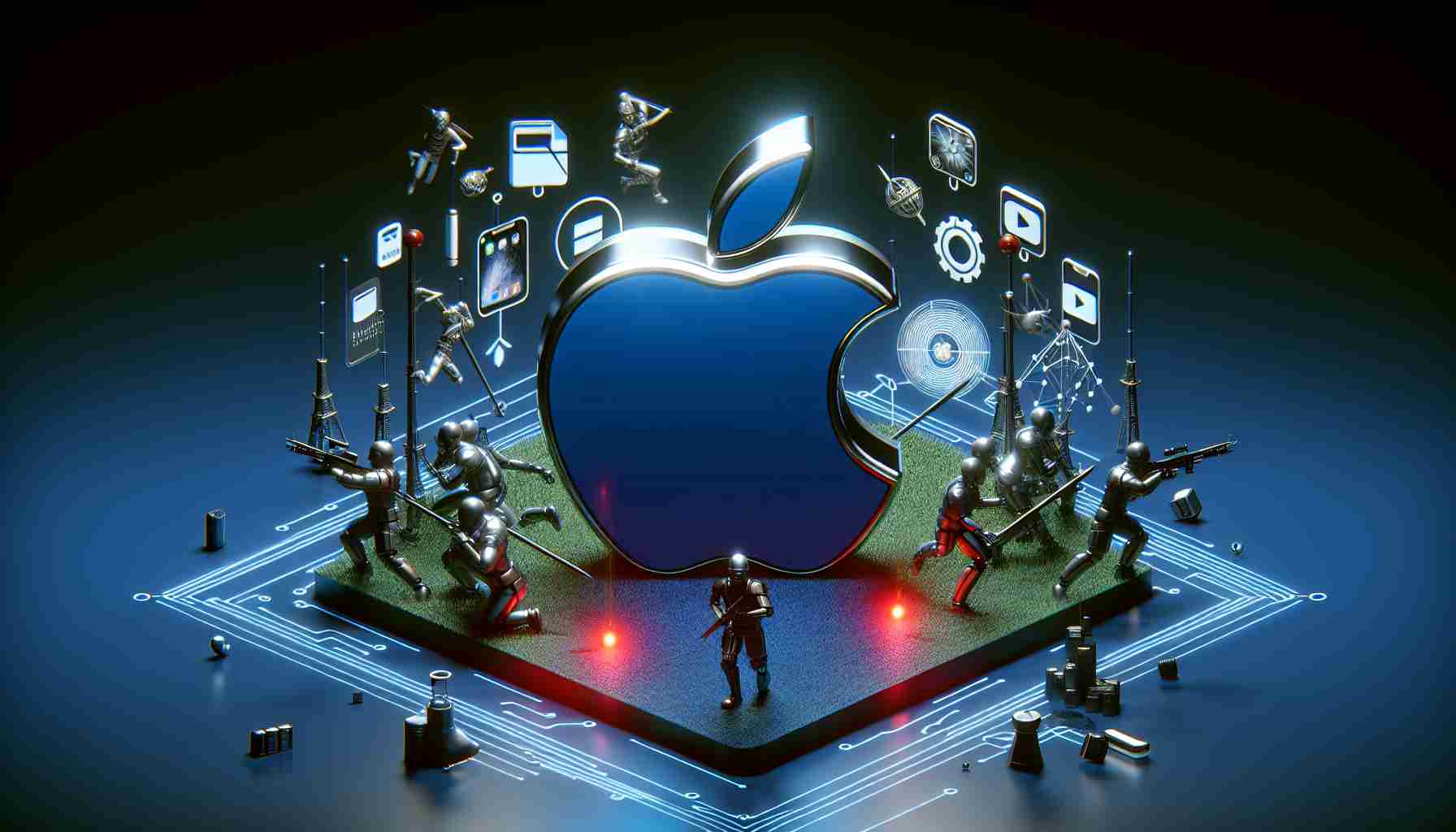Tech giant Apple has vehemently denied the allegations that it violated a court order pertaining to its App Store policies. The company has urged a California federal judge to dismiss “Fortnite” developer Epic Games’ request to hold them in contempt. The dispute revolves around Epic Games’ accusations of antitrust violations against Apple for its stringent controls over app downloads and in-app transactions.
Apple’s filing contends that Epic Games’ aims to obtain Apple’s tools and technologies for free and seeks to “micromanage Apple’s business operations” in a manner that would primarily benefit Epic Games’ profitability. Epic Games, on the other hand, has refrained from commenting on the matter. Apple, too, has chosen not to respond to requests for comment regarding the ongoing dispute.
Although Epic Games did not entirely prevail in their lawsuit against Apple, U.S. District Judge Yvonne Gonzalez Rogers did rule in their favor by ordering Apple to grant developers greater flexibility in guiding app users to alternative payment methods. This ruling came after the U.S. Supreme Court declined to hear Apple’s appeal of the injunction order early this year.
Epic Games recently filed a court document accusing Apple of a “blatant violation” of the injunction, highlighting the exorbitant 27% fee that Apple imposes on developers for certain purchases. Such practices, according to Epic Games, render alternative payment options “commercially unusable.” Furthermore, Epic Games claims that Apple restricts apps from informing users about alternative payment methods.
The legal battle between Apple and Epic Games has garnered attention from several other tech giants and industry players, including Meta Platforms, Microsoft, Elon Musk’s X, and Match Group. These entities have echoed Epic Games’ arguments, reinforcing the belief that Apple is in “clear violation” of the court’s order.
Interestingly, a separate case initiated by Epic Games against Alphabet’s Google is expected to reach a judge in San Francisco this year, potentially leading to a separate injunction impacting the Google Play Store.
The ongoing legal battle between Apple and Epic Games takes place within the context of the highly competitive and lucrative mobile app industry. The industry has experienced tremendous growth in recent years, with the increasing popularity of smartphones and mobile devices driving the demand for mobile apps. According to market research firm App Annie, global consumer spending on mobile apps reached $143 billion in 2020, and it is projected to continue growing at a rapid pace.
Apple’s App Store, as one of the largest app distribution platforms, plays a crucial role in the industry. However, Apple’s strict control over app downloads and in-app transactions has been a subject of debate and scrutiny. Critics argue that the company’s policies create barriers for developers and limit competition, ultimately resulting in higher prices for consumers.
In response to these concerns, regulators and antitrust authorities have been closely monitoring Apple’s actions. In the United States, the Department of Justice and the Federal Trade Commission have initiated investigations into the company’s app store practices. In the European Union, the European Commission has launched a formal antitrust probe examining whether Apple’s App Store rules violate EU competition rules.
These investigations and legal battles pose significant challenges for Apple and could potentially lead to significant changes in its app store policies. If regulators or courts determine that Apple’s practices are anticompetitive, it could force the company to alter its policies and open up its platform to more competition. This could have far-reaching implications for both Apple and the broader app industry.
Despite the controversy, Apple’s App Store remains a dominant player in the market, with millions of apps available for download. The platform has a large and loyal user base, which provides an advantage for developers seeking to reach a wide audience. However, the growing scrutiny and legal challenges faced by Apple highlight the need for greater transparency and fairness in the app distribution market.
For more information about the mobile app industry and the ongoing legal battle between Apple and Epic Games, you can visit the following links:
– App Annie: A leading provider of mobile app market data and insights.
– Apple App Store: Official website of the Apple App Store, providing information and resources for developers and users.
– FTC Antitrust Laws: Information from the Federal Trade Commission about antitrust laws and their implications for businesses.
– European Commission – Competition: Official website of the European Commission’s competition department, providing information on antitrust investigations and cases in the EU.
– US Department of Justice – Antitrust Division: Official website of the US Department of Justice’s antitrust division, featuring news, investigations, and enforcement actions related to antitrust laws.
The source of the article is from the blog reporterosdelsur.com.mx
